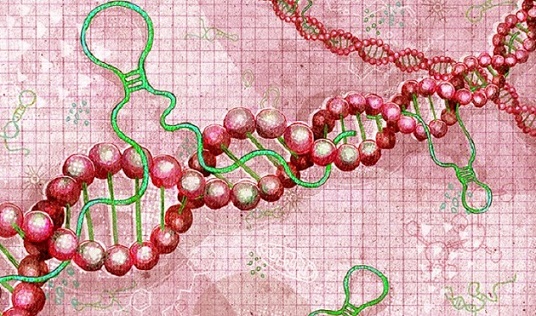Nikhil Prasad Fact checked by:Thailand Medical News Team Sep 01, 2025 5 months, 3 weeks, 3 days, 1 hour, 47 minutes ago
Medical News: New research sheds light on hidden genetic players in COVID-19
A team of researchers from the Department of Biotechnology, College of Life Science and Agriculture Forestry, Qiqihar University; the Heilongjiang Provincial Key Laboratory of Resistance Gene Engineering and Protection of Biodiversity in Cold Areas, Qiqihar University; and the Department of Computer Science and Technology, College of Computer and Control Engineering, Qiqihar University, has unveiled new findings about genetic elements known as long noncoding RNAs (lncRNAs) and their role in COVID-19. Unlike ordinary genes that produce proteins, lncRNAs regulate how other genes function. Their involvement in inflammation, fibrosis, and immune responses makes them particularly interesting in the study of diseases. According to this
Medical News report, three lncRNAs—H19, TUG1, and CRNDE—are now being highlighted as possible biomarkers that could improve diagnosis and treatment strategies for COVID-19 patients.
 Long Noncoding RNAs Linked to COVID-19 Severity and Diagnosis
How the study was conducted
Long Noncoding RNAs Linked to COVID-19 Severity and Diagnosis
How the study was conducted
The researchers examined blood samples from 28 COVID-19 patients and compared them with 17 healthy individuals. They measured the levels of H19, TUG1, and CRNDE using advanced laboratory techniques. By analyzing the results with machine learning models, they discovered that these genetic markers strongly correlated with inflammation in COVID-19 patients. In particular, a diagnostic panel combining CRNDE and H19 showed high accuracy in predicting infection, suggesting it could one day serve as a practical diagnostic tool.
Strengths and limitations
While the findings are promising, the study also comes with limitations. The sample size was relatively small, and the focus was only on blood cells rather than tissues most affected by the virus, such as the lungs or blood vessels. The lack of data from patients with varying disease severity or long-term complications means the results cannot yet be widely applied. Additionally, although correlations with inflammatory markers were clear, the study did not prove whether these lncRNAs directly cause worsening disease or simply act as signals of ongoing damage.
Potential for diagnostics and therapy
The study’s innovative use of machine learning highlights how modern technology can accelerate medical discoveries. If validated with larger and more diverse patient groups, lncRNA panels could provide doctors with fast and accurate tools to distinguish COVID-19 from other respiratory illnesses such as influenza or RSV. On the therapeutic side, targeting lncRNAs like H19 or TUG1 with specific drugs could help reduce inflammation and fibrosis, potentially lowering the risk of severe outcomes.
Broader implications beyond COVID-19
Interestingly, these lncRNAs are not limited to COVID-19. H19 has been linked to heart and metabolic diseases, while TUG1 plays a role in tissue injury caused by low oxygen. CRNDE has associations with cancer and chronic inflammatory conditions. Th
is means research into these molecules could provide insights into many other diseases, including future viral outbreaks.
Conclusion
This study offers an important glimpse into the hidden world of long noncoding RNAs and their involvement in COVID-19. While more research is needed to confirm their role and practical use, the findings lay a strong foundation for the development of new diagnostic tools and treatments. As science progresses, understanding these genetic regulators could transform how we approach not just COVID-19 but a wide range of inflammatory and infectious diseases.
The study findings were published in the peer reviewed journal: Virology Journal.
https://link.springer.com/article/10.1186/s12985-025-02660-7
For the latest COVID-19 News, keep on logging to Thailand
Medical News.
Read Also:
https://www.thailandmedical.news/news/sars-cov-2-triggers-methylation-shifts-in-long-non-coding-rna-to-suppress-immunity-and-promote-viral-persistence
https://www.thailandmedical.news/news/cutting-edge-research-reveals-non-coding-rnas-role-in-tissue-repair-and-fibrosis
https://www.thailandmedical.news/news/the-role-of-long-non-coding-rnas-in-covid-19
https://www.thailandmedical.news/news/harvard-study-finds-that-cognition-associated-long-noncoding-rnas-are-dysregulated-upon-severe-covid-19
